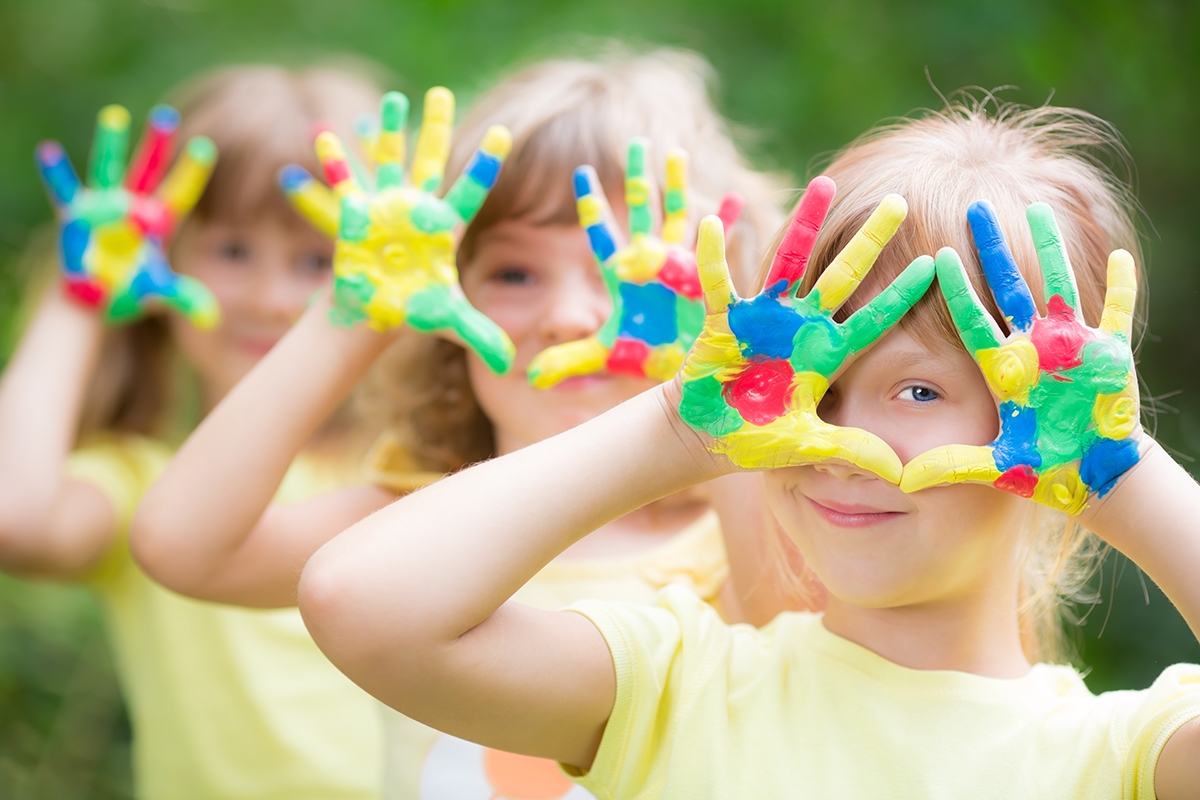Is creativity something you can teach your child? Some say it’s a natural skill, which your child either has or doesn’t have, but the truth is that child’s creativity more than an inborn talent, it is a skill that parents and teachers can help children develop.
Creativity is key to success professionally, but it is also key when it comes to personal development, health and happiness. Normally we associate creativity to artistic and musical expression, but the fact is that it is also essential for science, math, and social and emotional intelligence.
Some of the benefits of being creative include dealing better with change, better problem solving and releasing stress in a healthy way, among many others.
There are several ways of developing a child’s creativity. In the list below, you will find some of them:
Open-ended questions: “Where would you go if you could go anywhere? What if people could live in the ocean? What if …?” Allowing children to come up with theories and postulate ideas is another way of reinforcing their creativity and encouraging them to think outside of the box.
Encourage your child to make simple choices: What would you like to have for lunch? What would you like to do on your holidays? Allow them to think independently, which is a great way of exercising creativity. Another way of doing this is involving your children in decisions about their everyday lives, for example: “What can we cook that is delicious and simple?”, “How can we clean the house faster”?
Reading: Reading not only improves memory, expands vocabulary, and improves focus and concentration, it also exercises creativity. One of the best habits your child can acquire is to read every night before going to bed. But then… why stick to just traditional reading? Instead of finishing a chapter and turning the light off, ask your child what they think is going to happen next. Ask them about their favorite character, how they might feel and what they think they’re going to do next. Not only you will be spending quality time with your child, but you will also be helping him create stories, use their imagination, and enjoy the power of imagination.
Provide your child with stimulating items: Pencils, crayons, craft supplies, books, empty yogurt cups, wool, etc. Being surrounded by a stimulating environment will help children come up with games and play schemes, letting their imagination fly…
Don’t always be the one to entertain your child: If you are always there to entertain them when they’re bored or you just turn on the TV to stop them complaining, then they won’t have the chance to use their creativity to come up with ways of having fun by themselves. Let children find things to do on their own!
Brainstorm! Find different types of objects and encourage your child to come up with as many uses for it as possible. For example: A bottle can be a person, a pencil case or a magic wand! Make sure you praise him and encourage him to keep on coming up with ideas!
Play with your child: Role play, improvisation, movie scenes… anything! Pretending allows your child to imagine life from a different perspective, and to come up with creative solutions when needed. Use objects around the house to create a scenario, dress up with anything available and become stars for a while!
Storytelling: No matter what your child likes to do; playing with dolls, writing stories, pretending to be pirates… use these instances to engage in story telling! Follow your child’s lead and add your own twist and turns to challenge him when his turn to continue comes.
Focus on the process, not the results: Imagine there’s an activity in which children need to create a robot. Instead of asking the children if they finished, asked them about the process: What did you enjoy most? What was the most challenging aspect? By doing this, children will not only be developing analytical skills, but you can also encourage them to come up with different solutions for a same activity and exchange opinions.
Set a challenge! Rewards are always a motivation, and if you set an achievable challenge for your child, he’ll find infinite ways of getting there. Make sure these challenges are real and not based on the actual result but the process. For example: Come up with the menu of the week and write the shopping list in order to make it all.
At LAE Kids we provide Spanish lessons for children and we make sure that all of them focus on developing skills such as creativity and enhancing their self-confidence. Visit our Facebook page and website and check out some of the activities we prepare for our children… there are plenty of ideas for you to implement at home!



